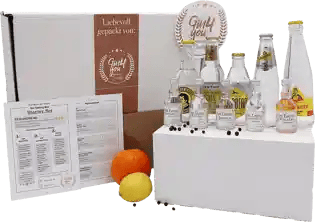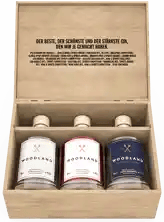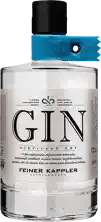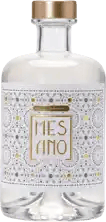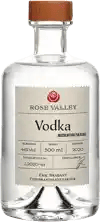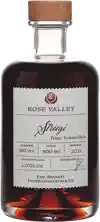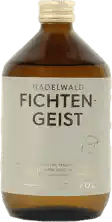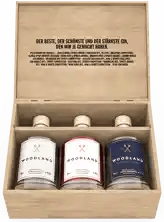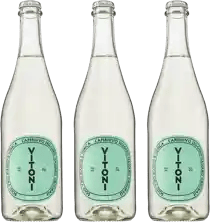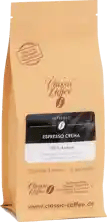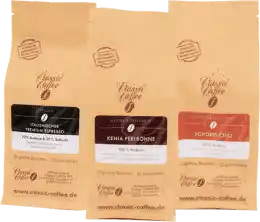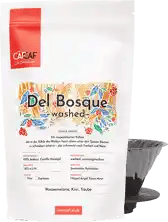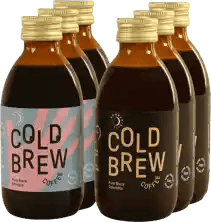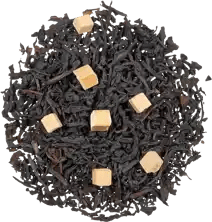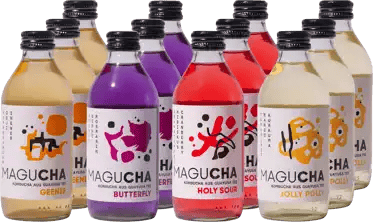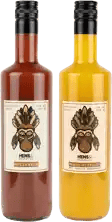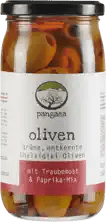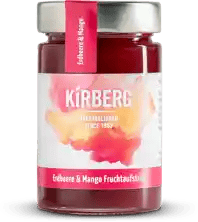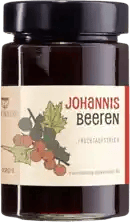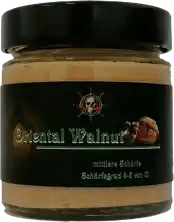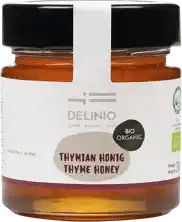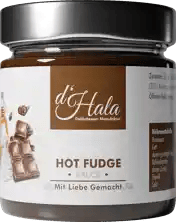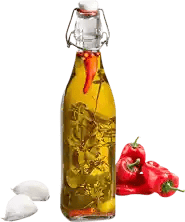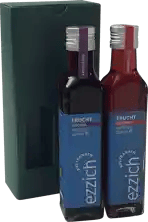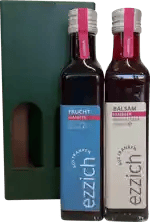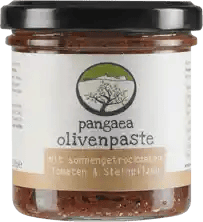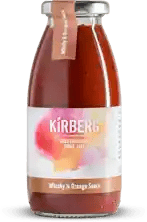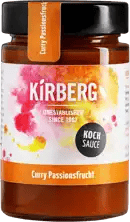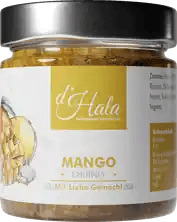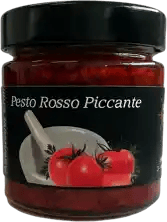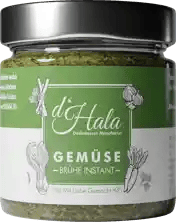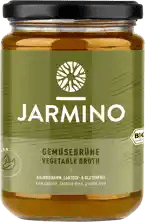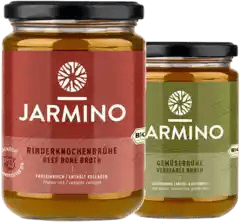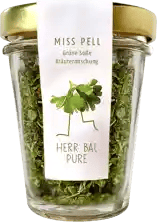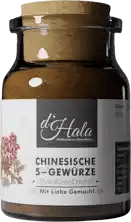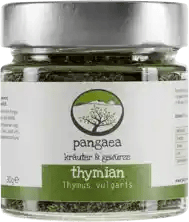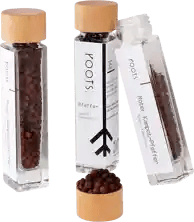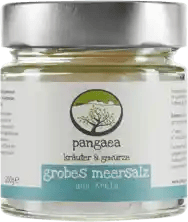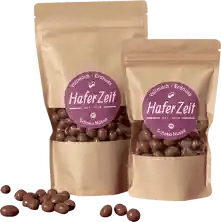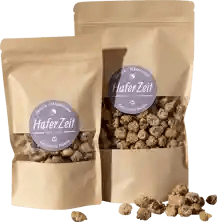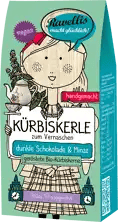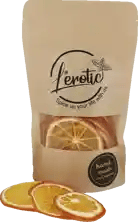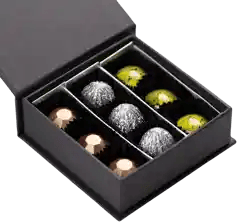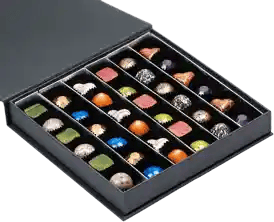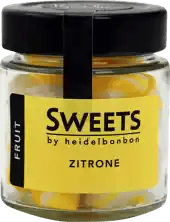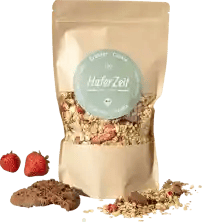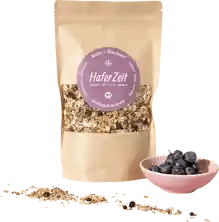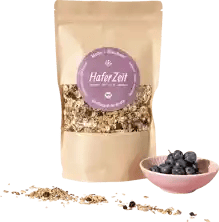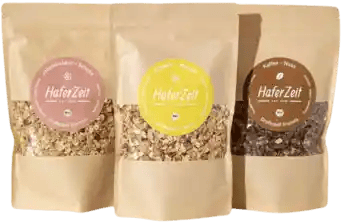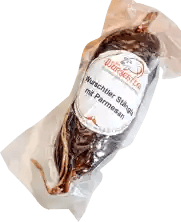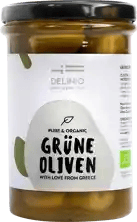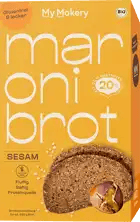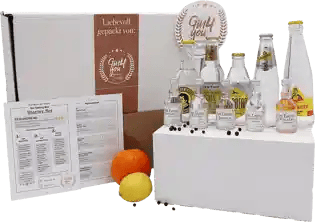Quality instead of quantity!
7,000 independent products
No mainstream
7,000 independent products
Lemon juice - the all-rounder for the kitchen, bar & co.
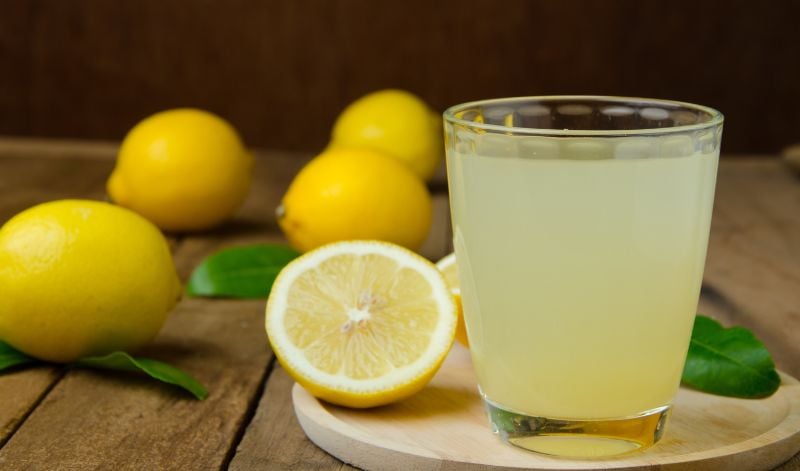
The most important facts summarized for you:
- One lemon contains approx. 30-40 ml of juice
- The juice content can vary from lemon variety to lemon variety
- Compared to natural lemon juice, lemon juice concentrate has a significantly lower liquid content - and a much higher acid content
- Lemon juice is not only used in food and drinks, but also in many household applications.
Lemon juice is a true all-rounder. The sweet and sour juice is not only an absolute staple in the kitchen or behind the bar counter - lemon juice can also work wonders in the home! Find out more about this miracle juice in this article. Starting with essential questions such as: How much juice is actually in a lemon - and how do I get it out of there in the first place? The many uses of lemon juice - from the classic use in marinades and desserts to surprising applications such as polishing brass or removing limescale stains.
How much juice is in a lemon?
On average, a lemon contains around 30-40 milliliters of juice.
However, the actual juice content varies from lemon to lemon. To extract as much juice as possible from a lemon, you can roll it before squeezing or heat it briefly in the microwave to increase the juice yield.

As a rule, you get approx. 30-40 ml of juice from a lemon
Factors that can influence the juice content of a lemon
The juice content of a lemon can be influenced by various factors. One of the most important factors is the ripeness of the lemon. A ripe lemon usually contains more juice than an unripe one. It is therefore advisable to allow the lemons to ripen completely before harvesting & squeezing them.
The storage of the lemon can also influence the juice content. Freshly harvested lemons generally have a higher juice content than lemons that have been stored for a longer period of time. It is recommended that lemons are stored in a cool, dry place to preserve their juice content for as long as possible.

Lemon varieties differ not only in size, but also in their juice content
The type of lemon also plays a role. There are different types of lemons with different juice content. Some varieties are known for their high juice content, such as the Volkamer or Meyer lemon, while others are less juicy. In general, when selecting lemons, care should be taken to ensure that the fruit has as thin a peel as possible - the thinner the peel, the more space for juice and pulp.
Methods for extracting juice from a lemon
There are various methods for extracting the juice from a lemon. Probably the most common method is to use a citrus juicer. This special press makes it possible to squeeze the juice out of the lemon efficiently and without much effort.
Another option is to squeeze the lemon by hand. This involves cutting the lemon in half and squeezing it over a container using light pressure. This method requires a little more effort - and definitely makes more of a mess than the press method.

Traditionally, a lemon squeezer is used to extract the juice
Another option is to use a juicer or a mechanical juicer. These electric devices specialize in extracting juice from various fruits, including lemons. To do this, the juicer crushes or crushes the fruit and separates the juice from other components such as peel, pulp or seeds. The machines are mainly used in the industrial production of lemon juice - and are therefore rather uncommon for home use.
Difference between lemon juice vs. lemon juice concentrate
The main difference between lemon juice and lemon juice concentrate lies, as the name suggests, in the concentration and preparation of the juice. Lemon juice is the juice obtained directly from fresh lemons, which has a high water content. Lemon juice concentrate, on the other hand, is obtained through a special production process in which the majority of the water is removed from the juice.
Lemon juice concentrate is produced in several stages. First, ripe lemons are squeezed to extract the raw lemon juice. This juice is then concentrated by heating and evaporation until the water content is reduced to around 20%. This process produces a viscous, highly concentrated mass that has a much more intense flavor and a higher acid concentration than normal lemon juice. Lemon juice concentrate is used in food production, for example.
The importance of lemon juice in the kitchen
Lemon juice plays an important role in the kitchen and is used in a variety of ways. As an ingredient, it gives many dishes a fresh and tart taste. Lemon juice is ideal for seasoning salads, fish and meat dishes as well as sauces and soups. Lemon juice is also often used in desserts, pastries and dessert creations.
Lemon juice is also a popular ingredient in the preparation of lemonades and cocktails. Its tart note gives drinks a refreshing and tangy component. Whether in a classic lemonade or a refreshing mojito - lemon juice adds that certain something.

Whether for cocktails, savory dishes or delicious desserts like this lemon pie - lemon juice is ubiquitous in the kitchen.
In addition to its added flavor, lemon juice can also have health benefits. It is rich in vitamin C, which can boost the immune system and help maintain healthy skin.
Overall, lemon juice is a versatile product in the kitchen that can be used both as a flavoring agent and as a healthy supplement. Whether for seasoning, mixing drinks or for health-conscious cooking, lemon juice is an essential ingredient in pretty much every kitchen around the world.
Other uses for lemon juice
Lemon juice is not only a refreshing addition to drinks or dishes, but also has many other uses.
Lemon juice can be used as a natural household cleaner. Its antibacterial properties make it ideal for cleaning surfaces such as worktops, sinks and chopping boards. Simply apply a little lemon juice to the soiled surface, leave to act briefly and then wipe off - and everything shines like new. But be careful: not all surfaces are suitable for treatment with lemon juice. Marble, for example, reacts sensitively to the acidity of lemon juice and should therefore not be cleaned with it.

Lemon juice is also great as a natural cleaner
Lemon juice can also help to remove stains. Whether limescale deposits in kettles or tea and coffee stains on cups - the acidic juice of the lemon acts as a natural cleaner and helps to remove unpleasant stains.
Frequently asked questions and answers about lemon juice
How much lemon juice should I consume per day?
It is recommended to squeeze about half a lemon to a whole lemon a day and drink the juice. This can vary depending on personal preferences and health needs.
However, it is important to keep the consumption of lemon juice in moderation, as excessive consumption can lead to stomach irritation due to the high acid content.
What is the shelf life of lemon juice?
Freshly squeezed lemon juice is best consumed immediately after squeezing or within a few hours to get the maximum amount of vitamin C and other nutrients.
Stored in the refrigerator, the juice will stay fresh for about 2-3 days. It is recommended to store the juice in an airtight container to extend its shelf life.
How healthy is lemon juice?
Lemon juice can have several health benefits. It contains a high concentration of vitamin C, which can strengthen the immune system and act as an antioxidant, meaning it can bind free radicals in the body. The juice also contains potassium, which can have a positive effect on heart health, as well as flavonoids and the aforementioned antioxidants, which can also reduce inflammation. In addition, regular consumption of lemon juice can help to improve digestion.
What can you do with lemon juice?
Lemon juice is versatile and can be used in many recipes.
It can be used as a dressing for salads, as a marinade for meat or fish, to enhance drinks such as lemonade or cocktails and even to make homemade cleaning products. Lemon juice gives food and drinks a refreshing acidity and a citrusy taste.
How much lemon juice concentrate can be used instead of fresh lemon juice?
If fresh lemon juice is not available, lemon juice concentrate can be used. A rule of thumb is that 1 teaspoon of lemon concentrate is roughly equivalent to the juice of half a lemon.
Note that the concentrate may not be as fresh and flavorful as fresh juice. Adjust the amount to your taste and dilute with water if necessary.
Matching products to the article
Recent articles
-
24 JulDrinks advent calendar: The best gin, whisky & beer calendars for the pre-Christmas period
-
24 Jul"The quality of Languedoc wines simply amazed me" - An interview with two noses for wine
-
10 JulLimoncello - All about the Italian lemon liqueur
-
10 JulAll about lemonade - a world-famous classic
-
18 JunMarder Edelbrände: Germany's best single malt whisky
-
06 JunEuro 2024: Beer, soccer and singing!
-
06 JunThe 11 best gins for the 2024 European Championship summer
-
29 MayThe art of fermentation: discover the amazing benefits for your health
-
28 May"It sounds crazy, but it tastes fantastic!" - Interview with a pizza chef
Brilliant!

Bitte bestätige deine Anmeldung noch eben - du hast eine Bestätigungsmail von uns. Klicke darin auf den Link. Danach bekommst du deinen Rabattgutschein.

